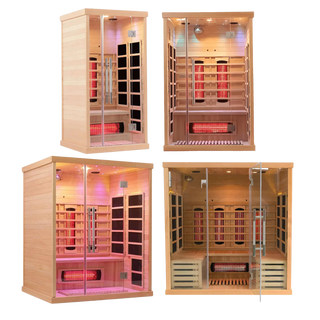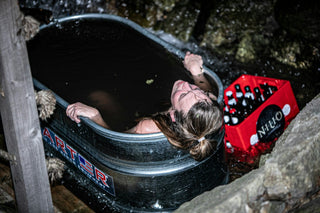The History of Saunas and Their Significance
Saunas have been a cornerstone of wellness and relaxation for thousands of years, deeply rooted in the cultural traditions of various societies. From the Finnish "savusaunas" to the Russian "banyas," these heat-filled sanctuaries have evolved over time but continue to offer profound physical, mental, and social benefits.
The Origins of Saunas
The history of saunas is as diverse as the cultures that embraced them:
- Finnish Savusaunas: The word "sauna" originates from Finland, where saunas were traditionally smoke-filled wooden huts, or savusaunas. Heated stones created the steam that filled the room, providing warmth and a cleansing experience. These saunas were not only places for relaxation but also for childbirth, healing, and spiritual rituals.
- Russian Banyas: In Russia, banyas became social hubs where families and friends gathered to relax and bond. With their combination of high heat and humidity, banyas were also valued for their ability to purify the body and promote vitality.
- Other Traditions: Variants of saunas have been found in cultures around the world, including Native American sweat lodges, Turkish hammams, and Japanese onsen baths. Each culture adapted the sauna concept to suit its environment and spiritual practices, demonstrating the universal appeal of heat therapy.
The Significance of Saunas in Ancient Life
In early societies, saunas served purposes far beyond relaxation. They were:
- Places of Healing: Ancient people believed saunas could ward off illness and boost vitality. The heat promoted sweating, which was thought to detoxify the body and alleviate ailments.
- Spiritual Sanctuaries: Saunas often played a role in purification rituals. The steam and warmth were believed to cleanse not just the body but the spirit as well.
- Community Centers: Saunas were integral to social life. Communities gathered to share stories, forge bonds, and celebrate traditions, making them central to cultural identity.
Why Use a Sauna Today?
While society has advanced dramatically, the benefits of saunas are timeless. In fact, modern lifestyles make them more relevant than ever:
- Stress Relief: In today’s fast-paced world, saunas provide a much-needed escape. The serene heat helps reduce stress, promote relaxation, and improve sleep quality.
- Detoxification: Saunas encourage sweating, which helps expel toxins and impurities from the body, leaving you feeling refreshed and revitalized.
- Physical Recovery: Athletes and fitness enthusiasts use saunas to relax muscles, improve circulation, and aid recovery after workouts.
- Mental Clarity: Spending time in a sauna can help clear your mind, improve focus, and foster a sense of balance and tranquility.
The Modern Sauna Experience
Today, saunas come in various styles to suit individual preferences, from traditional wood-burning models to modern infrared saunas. Whether you seek the authentic heat of a Finnish sauna or the gentle warmth of infrared therapy, saunas remain a versatile tool for promoting overall well-being.
As we embrace technology and innovation, the essence of the sauna remains unchanged: it is a space for rejuvenation, connection, and inner peace—a timeless tradition that continues to enrich lives around the world.
Embrace the power of saunas and reconnect with an ancient tradition that nurtures both body and soul. Whether for physical health or mental clarity, the sauna experience is a gift that transcends time.








